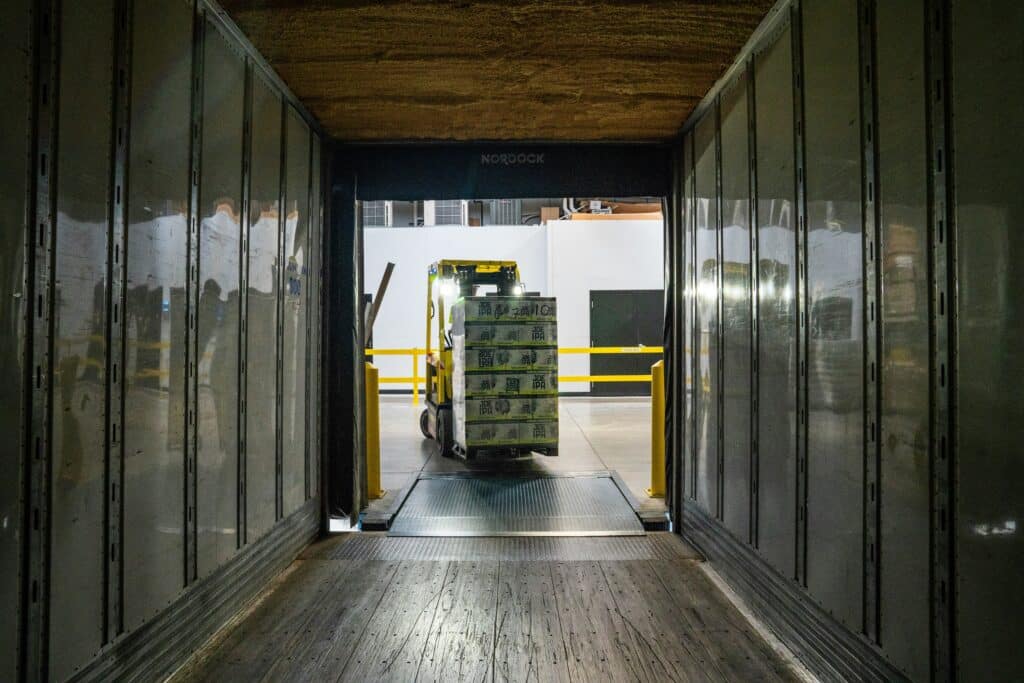Logistics Management: A Definition and Guide to Optimization
Transporting goods from point A to point B requires constant oversight, detail-oriented tracking, and transparent communication (to name a few things) amongst many changing hands. The many moving parts all fall within the category of logistics management. If you’re running a business (particularly one with tangible goods) or are in charge of logistics, then you know this side of operations all too well.
It’s safe to guess that any business owner or logistics manager (logistician) believes in having logistics management software readily accessible. We’ll begin by defining what logistics and supply chain management entails, and then uncover how AI in logistics and supply chain management is easing the burdens of many involved.
What is Logistics Management?
Logistics management is defined as the process of overseeing and managing all activities required to move goods from its source to the customer. Logistics management covers the entire chain of operations, including:
- Order processing
- Materials handling
- Warehousing
- Packaging
- Transportation
- Customer service management
As part of supply chain management, this aspect of business implements, plans, and monitors the effective forwarding and reverse flow of goods, services, and information in an effort to satisfy a customer.
Ultimately, if your business’ logistics aren’t running smoothly, neither is your business. Since everything depends on the satisfaction of the customer or end user, as well as the overall experience and value being delivered, logistics management is a primary concern for organizations. Along with customer satisfaction, proper management of logistics will result in cost savings and waste reduction.

What’s Involved in Logistics Management?
As briefly touched on above, logistics management covers everything that a product or service must go through to get from its source to its end user.
Let’s walk through the steps in more detail:
Transportation
Goods can travel by roadways, railways, land, and sea to arrive at their destination. Each method of transportation has its own advantages and disadvantages, which vary in speed, efficiency, cost effectiveness, and risk.
Warehousing and Storage
Before an item has been ordered or paid for by a customer, it has to reside somewhere. Businesses receive goods from manufacturers and suppliers and tend to store them in warehouses until they have been called upon to be delivered. Part of warehousing and storage relies on the proper protection, safety, and handling of the goods so that they remain in their intended condition.
Inventory Management
Storing too many or too few products in a warehouse can cause problems for an organization. If you have too little inventory, you fail to satisfy a customer’s demand for the item. If you have overstock, you are carrying risk and tying up potential cash flow. Maintaining the optimal level of stock, also known as inventory management, is a huge piece of the logistics management puzzle.
Order Fulfillment
Order fulfillment is the process that covers once a product has been ordered and its preparation to be delivered. At this stage, it’s necessary that the inventory management software or spreadsheet be updated to reflect diminishing stock as it gets sent out to a customer.
Demand Planning
With the aid of analytics, machine learning, and artificial intelligence, companies are able to improve their demand planning to more accurately forecast a product’s demand. This works to optimize inventory management.
The Massive Role of Technology in Logistics Management
The role of technology as part of logistics cannot be understated. Many different types of technology continue to impact the field and maximize employees’ and managers’ ability to do their jobs efficiently.
A few key technologies that are helping to positively mold the industry include:
- Automation: From order picking to packing, automation tools are streamlining key processes and minimizes the need for human intervention. As a result, humans have more time to focus on high-level tasks that require human thought and care.
- Data Analysis: Advanced analytics tools empower companies to forecast future customer demand based on historical data and pattern recognition.
- Speech AI: Speech AI, like aiOla, enables teams to complete more by speaking through checklists in their native language, accent, acoustic environment, and using business-specific jargon. This means that employees on the warehouse floor can verbally process pallets, log data in real-time, and immediately remedy issues to optimize operations management should a recheck be required. aiOla also provides transparency for stakeholders and managers to always have a finger on the pulse of productivity with the ability to run customized reports.
- Real-Time Tracking: GPS and tracking technologies offer visibility into where a package is at any point in time to reduce the risk of loss.
As you can see, all of these technologies serve their own purpose, but all the while, they all add to the oversight, efficiency, and transparency of the ever-moving nature of supply chains and logistics.
How Does AI Technology Impact Logistics Management?
Logistic management solutions continue to be a focus because the industry of logistic management is expected to surpass 13.7 billion euros by 2027, and quite frankly, logistics is in everything! In fact, in 2020,10.7% of America’s gross domestic product (GDP) was attributed to logistics.
When it comes to artificial intelligence, the advantages for logistics management are plenty. AI drives predictive analytics to forecast demand, optimize routes, and even powers autonomous vehicles for delivery. And, like we shared above, speech-enabled AI (like aiOla) makes it possible to complete critical tasks and workflows with nothing more than speech. Meanwhile, data that would otherwise be lost or remain unstructured becomes structured for analysis, trend spotting, and faster issue resolution.
Artificial intelligence helps businesses to:
- Make informed and timely decisions
- Reduce operational costs
- Minimize mistakes
- Improve the customer experience
- Enhance employee satisfaction
Some companies may feel hesitant to implement AI for logistics management due to concerns about privacy, needing skilled personnel to use it, or high investment costs. To overcome these hurdles, it’s advisable to find solutions that are right for your business at the right time. For example, aiOla is easy to implement as it works with your existing devices and doesn’t require any changes to your processes as they currently stand. There’s no skill needed to use it– just speech! And, data is heavily protected, so you don’t have to worry. To learn more, aiOla’s team is ready to listen and answer any questions.

Driving It All Home
It may feel impossible to ever fully quantify, “what is the significance of logistics management?” but suffice it to say that its impact is absolutely imperative for organizations to function smoothly and deliver ultimate customer satisfaction. Luckily, technology is constantly evolving to better support logistics management, and people in the field are typically openly ready to take advantage of such useful solutions.


